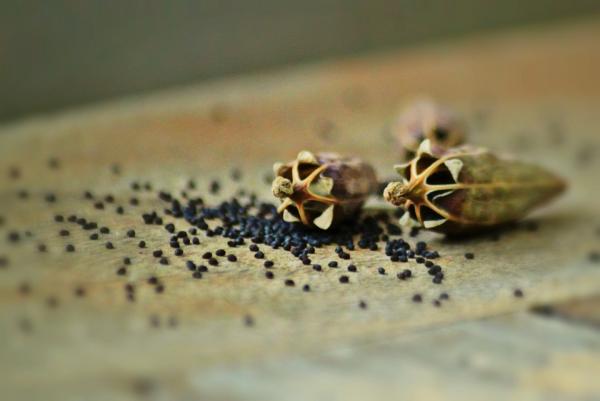Poppy seed tea has potentially lethal consequences according to a new paper published in the Journal of Forensic Sciences. Researchers at Sam Houston State University decided to look into home-brewed poppy seed tea and its lethality.
If you follow the media you will be well aware that the opioid epidemic in this country has reached crisis proportions. Deaths attributable to opioids have quadrupled since 1999 and account for the six out of every ten overdose deaths. Whereas heroin and opiate-containing medications have been the primary source of addictions and deaths, it seems that brewing tea from unwashed poppy seeds can also kill.
The opium poppy plant (Papaver somniferum) has been cultivated for centuries as a source for opium. Poppy seeds produced from the poppy plant produce a milky sap containing opiates. Poppy seed tea is made by washing or soaking the seeds in water. Opium is contained within the seed capsule and also contains a variable mixture of alkaloids, including roughly ten percent morphine, 6 percent noscarpine, one percent papverine, 0.5 percent codeine and 0.2 percent thebaine.
Potency of the seeds can be determined by method of harvest and geographical origin, but also, importantly, it is the unwashed and unprocessed poppy seeds that have a higher concentration of morphine and codeine. Unwashed seeds are not regulated and can be purchased in bulk quantities online.
How lethal ingestion of opiates can be depends on individual tolerance which develops rapidly with long-term use. As the authors of the study point out, “The level of information that is shared online contributes to the facilitation of drug abuse practices such as extracting opium alkaloids by brewing poppy seed tea,” and they add, “However, this practice can have fatal consequences.”
Professor Madeleine Swortwood, an Assistant Professor in the Department of Forensic Science at Sam Houston State University, was contacted by the parent of a young man who died after drinking home-brewed PST. Her aim, in this study, was to determine if lethal amounts of morphine or other opiate alkaloids could be extracted from home-brewing the seeds.
Dr. Sortwood and her team analyzed products from 22 different vendors. Her lab prepared samples of standard solution of home brewed tea, using four different recipes. These samples were then analyzed using liquid and mass spectrometry to quantify morphine, codeine and thebaine. They found that lethal concentrations of morphine, codeine and thebaine could be extracted using the recipes available online. Thebaine is important to test as it can distinguish poppy seeds from heroin use.
There was a Seinfeld episode where the character Elaine tested positive for opiates during a drug screen and in fact, it is true that ingesting poppy seeds can lead to positive results in urine drug screening and can be detected in blood, saliva and hair as well. The metabolites of poppy seeds however, differ from heroin, therefore, can be used to distinguish it from heroin use.
“Although some bulk poppy seeds can be more lethal than others due to the variation in morphine concentrations both between vendors and between harvest dates, it should be noted that regardless of sample, it is possible to obtain lethal doses of morphine from poppy seed tea if moderate volumes of tea are consumed,” according to Dr. Sortwood.
There is no way to determine how much morphine is contained in a bag of poppy seeds purchased online. It can vary even if the same vendor is used for a subsequent purchase. There is no way to gauge the risk in an individual with opioid tolerance or someone who has never had previous opiate exposure. Consuming large amounts of tea in a opioid-tolerant person can still prove fatal
Like cough syrup and ephedrine, perhaps it is not unreasonable for the Food and Drug Administration to consider introducing regulations in a largely unregulated poppy seed market. Or perhaps, only washed or processed poppy seeds that have lower alkaloid content ought to be commercially available only. In the interim, educating families about the potential hazards associated with these little black seeds could be a place to start.




